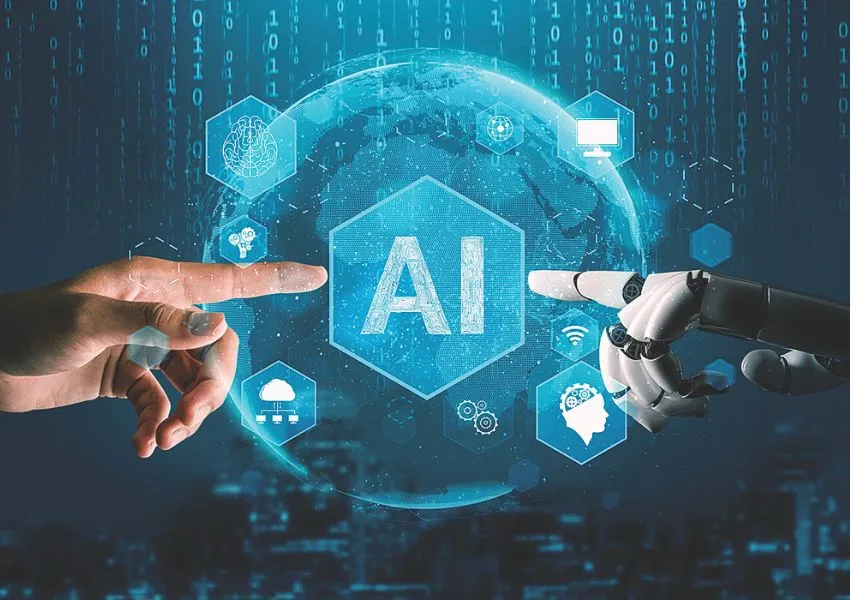Introduction
As the world enters a new era of digital innovation, India stands at the forefront of the Artificial Intelligence revolution. The year 2025 marks a pivotal milestone for India’s AI aspirations, reflecting a national strategy that balances global competitiveness with societal benefit. From urban tech hubs to rural outreach, India’s AI roadmap aims to harness the full potential of AI technologies in a responsible and inclusive manner.
In this blog, we will explore how India plans to shape its AI future, the role of industry and education, and how initiatives—like earning a certification course in artificial intelligence—are empowering individuals and organisations. We will also discuss how aspirants can further boost their skill set with an AI Course in Bangalore to meet the demands of India’s emerging AI-driven economy.
A Visionary Path: The National AI Strategy 2025
India unveiled its National AI Strategy several years ago, and continuous revisions have sharpened its focus and clarified action plans for 2025. The strategy centres around the five pillars, often termed as the “AI quintet”:
- Augmenting Access and Technology Infrastructure
- Skilling and Education
- Research and Innovation
- Inclusive Deployment
- Governance and Ethics
These pillars interlink robustly: without reliable infrastructure, even the most innovative research cannot reach underserved communities; without ethical standards, deployment may do more harm than good. The 2025 roadmap refines action items under each pillar with multi-stakeholder partnerships across government, academia, and industry.
Infrastructure and Data Ecosystems: A Solid Foundation
A robust data and tech backbone is essential for AI to thrive. In 2025, India is investing heavily in enhancing its computational infrastructure, ranging from public cloud services to edge computing. The Digital India initiative and BharatNet project are building critical connectivity and data storage capacity, especially in rural regions.
An essential element in such infrastructure is data governance frameworks. India continues to develop data protection laws and sharing mechanisms that support collaborative AI development while ensuring user privacy. As of mid-2025, pilot programs in states like Karnataka and Maharashtra are experimenting with federated learning models, allowing sensitive datasets (like health records) to stay local while enabling aggregate AI insights.
Skill Development: Empowering the Workforce
Central to India’s AI ambitions is creating a capable workforce. The government’s Skill India campaigns are collaborating with universities, corporate partners, and ed-tech platforms to mainstream AI education.
Completing an Artificial Intelligence Course—whether online or in-person—is increasingly necessary. Many of these are tailored for early-career professionals, covering essential topics like machine learning, natural language processing, and model deployment. The emphasis is on hands-on training and case studies rooted in Indian contexts, such as the use of regional language tools, agricultural monitoring, and public service improvements.
Cities like Bengaluru have become vibrant ecosystems for AI education. Aspiring professionals often enrol in tech-oriented cities, where institutions offer immersive boot camps and industry-linked programs. These programs provide access to mentors, real-world projects, and career networking opportunities, enabling graduates to transition into roles at top tech firms, research labs, or startups.
Research and Innovation: Spotlight on Homegrown Solutions
India’s AI vision is not limited to adapting global technologies—it is driven by indigenous innovation. Premier institutes such as IISc Bangalore, IITs (for example, IIT Bombay, IIT Madras), and IIITs are accelerating AI research across disciplines. Areas of focus include:
- Multilingual NLP supporting regional languages
- AI in agriculture for yield prediction and pest detection
- Health AI for disease screening and diagnostics
- Innovative city applications: traffic management and energy distribution
Initiatives such as the National AI Portal and the Centre of Excellence (CoE) model foster knowledge sharing and collaborative development among labs, private firms, and government bodies.
More novel frameworks are emerging. For example, hybrid AI-human systems that combine algorithmic insights with community feedback are being tested in disaster management and rural education. Such participatory models highlight India’s commitment to ethical, community-oriented AI solutions.
Industry Impact: Transforming Sectors and Startups
India’s industry players are rapidly adopting AI to optimise operations and foster innovation. Let us examine several key sectors:
Financial Services
Banks and fintechs are leveraging AI for credit risk assessment, fraud detection, customer support, and regulatory compliance. Notably, new AI-powered underwriting models now consider telecom, utility, and e-commerce transaction data, enabling “credit invisible” populations access to loans.
Agriculture
With a large agrarian base, India is testing various AI solutions, including satellite-based crop health forecasts, drone-assisted pesticide application, embedded sensors in soil, and farmer-focused advisory systems. Early pilots in Madhya Pradesh and Rajasthan have demonstrated productivity gains of 15–20%, paving the way for a regional-scale implementation under the AI strategy.
Healthcare
AI is helping to screen for conditions such as diabetic retinopathy and tuberculosis by utilising clinical and imaging data. Government-backed health programs are implementing early-warning systems for disease outbreaks using predictive modelling. AI-powered telemedicine platforms are bridging the specialist gap in remote areas.
Urban Planning and Governance
Innovative city initiatives across India are deploying AI for traffic optimisation, pollution monitoring, and utility grid efficiency. Some municipalities are also piloting AI-enabled public grievance systems that analyse text entries for prompt redressal and resource allocation.
Startups and Innovation
Indian AI startups, supported by incubators and early-stage VC funding, are expanding fast. Companies like CropIn (smart farming), SigTuple (medical diagnostics), and Uniphore (automated customer service) have scaled within India and are entering global markets. Women-founded ventures are also growing, supported by government grants aimed at boosting diversity in tech.
Governance, Ethics and Regulation: Responsible AI in Practice
A unique aspect of India’s 2025 AI roadmap is its emphasis on regulation and ethical governance. The National Digital Ethics Framework outlines best practices for promoting fairness, transparency, and societal benefits.
A key focus is reducing bias. For instance, regulators encourage AI systems to be tested across social and demographic groups before public deployment. The Advisory Board for Responsible AI analyses major projects—like e-governance, policing, or welfare services—to review fairness, accountability, and redress mechanisms.
Privacy is also taken seriously. India continues to refine its Personal Data Protection Policy, drawing on global models but balancing national interests in data-led innovation and sovereignty.
International Collaboration: From Local Impact to Global Influence
India’s approach is not insular. The country is collaborating with international partners, including the UK, Canada, Japan, and the EU, on AI research, ethical frameworks, and industry alliances.
In 2025, India co-hosted AI-focused workshops through UN agencies and G20 forums, highlighting its experiences with AI-driven developmental projects. These collaborations not only elevate India’s global standing but also open new opportunities for domestic professionals, whether they are certification courses offered online or classroom courses such as an AI Course in Bangalore that includes international modules.
Challenges and Roadblocks: What Lies Ahead
Despite India’s momentum, key challenges remain:
- Infrastructure gaps: Uneven internet connectivity and erratic power supply hinder deployments.
- Data quality issues: The shortage of cleaned, labelled, and unbiased datasets hinders progress.
- Talent breadth: While elite institutions produce AI talent, broader access to skills is uneven.
- Regulatory delays: Political and bureaucratic complexity slow data governance adoption.
- Trust and awareness: Both users and organisations need a better understanding of AI’s benefits and limitations.
India is addressing these issues through public-private partnerships, regional data hubs, funding for data startups, and awareness campaigns that educate citizens and policymakers.
The Citizen Perspective: How AI Affects You and Me
India’s AI push is not just a technocratic plan—it impacts everyday lives:
- Rural farmers receive SMS-based crop advice from AI agronomy platforms.
- Diagnoses are faster and more accurate, even in community health centres that use AI screening kits.
- Customer service is smoother with AI-powered chat assistants in multiple Indian languages.
- City life becomes more organised with apps that predict traffic or pollution.
What’s Next: India’s Roadmap Moving Towards 2030
India’s AI journey does not end in 2025. The roadmap sets the stage for long-term goals aimed at:
- Global AI leadership: Hosting forums, open-source hubs, and AI patent development.
- AI-first governance: Integrating AI into citizen services, like social security, taxation, and pensions.
- Inclusive empowerment: Bringing AI education to tier-2 and tier-3 towns, including female participation.
- Sustainable impact: Prioritising AI for climate resiliency, disaster management, and low-carbon solutions.
For those interested, India is promoting hybrid learning centres across regions and expanding its online offerings of Artificial Intelligence Course degrees, many of which are backed by accredited universities and industry tie-ups. If you are seeking a deep, immersive experience, completing a formal course dedicated to AI remains a gold standard due to the city’s ecosystem of companies, academia, and ecosystem support.
For more details visit us:
Name: ExcelR – Data Science, Generative AI, Artificial Intelligence Course in Bangalore
Address: Unit No. T-2 4th Floor, Raja Ikon Sy, No.89/1 Munnekolala, Village, Marathahalli – Sarjapur Outer Ring Rd, above Yes Bank, Marathahalli, Bengaluru, Karnataka 560037
Phone: 087929 28623
Email: enquiry@excelr.com

